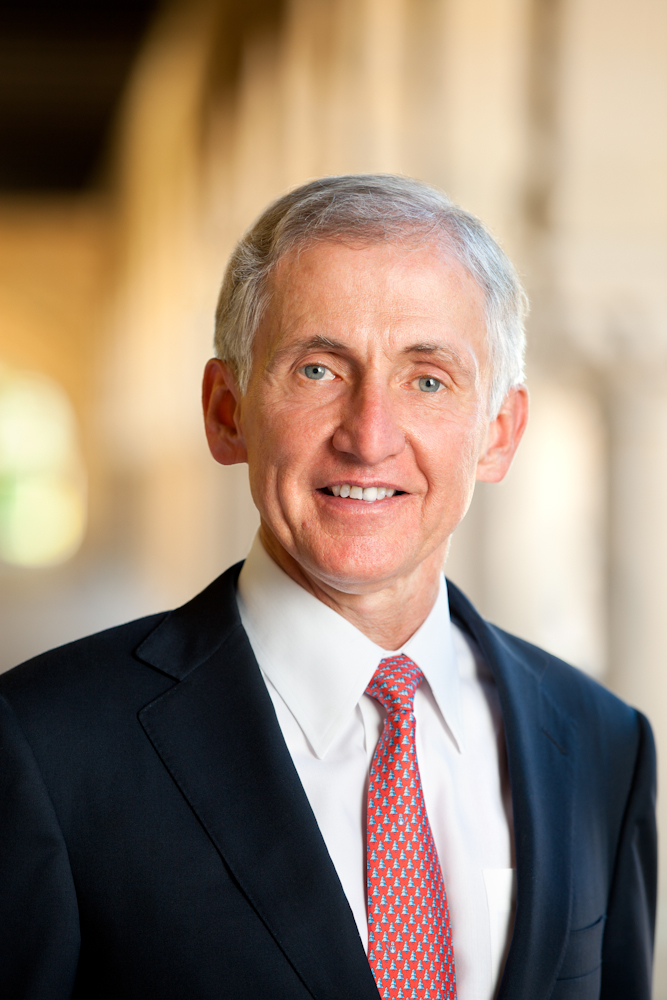Since last year, the School of Humanities and Sciences has been working to decrease the time to degree for students in Ph.D. programs to about five years by allowing departments to submit proposals for restructuring and reinforcement of benchmarks and monitoring procedures within various programs.

However, most humanities departments have yet to submit proposals, according to Richard Saller, dean of the School of Humanities and Sciences.
“I would have suspected a lot bigger uptake on it,” Saller said. “Among some faculty in the humanities—and I don’t know how many—there is a sense that we should not be aiming for a five-year Ph.D. program, that it takes longer than that and that they don’t want to compress Ph.D. training.”
According to Saller, time to degree for students completing Ph.D. programs in the humanities is typically longer than the time for students completing a doctorate in the social sciences and natural sciences.
Debra Satz, associate dean of the School of Humanities and Sciences, said that students with longer than average time to degree have historically not performed as well in the job market.
Longer than average time to degree is not only related to lower performance in the job market, but can deter interested students who do not want to go into academia from applying to complete a doctoral program, explained Russell Berman, a professor of comparative literature and director of the Department of German Studies.
“Not only is time to degree for getting a Ph.D. in the humanities longer than getting a Ph.D. for the social sciences and natural sciences, but it’s also longer than getting a professional school degree,” Berman said. “So a smart undergraduate approaching senior year…is going to ask whether he or she wants to spend seven years getting a Ph.D. in the humanities versus spending three years in law school.”
In addition, Saller said that a little over half of the doctoral students in the School of Humanities and Sciences who graduated in 2001 have tenure-track positions at universities. However, he said that ensuring that students graduate within five to six years is important for the other half of students not entering academia.
“Five years is a pretty significant period of time, especially in a context where many of the Ph.D.s don’t end up with academic jobs,” Saller said. “That’s also a factor in thinking through, ‘Is it fair to students to let them spend eight years or nine years working on a dissertation that doesn’t even issue in an academic job?’”
Satz attributed the long time to degree that exists now partially to Stanford humanities doctoral programs requiring fluency in a foreign language, which can add a significant amount of time to obtain a degree.
“Not every program requires students to be fluent in a foreign language, but some programs clearly do,” Satz said. “And for some of the students, they obviously have some background, but maybe not sufficient.”
According to Gabriella Safran, the chair of the Division of Literatures, Cultures, and Languages (DLCL), all five departments in the DLCL—comparative literature, German studies, French and Italian, Slavic languages and literature and Iberian and Latin American cultures—submitted proposals to move up program milestones such as testing students earlier to measure how much language training they need before entering the program.
Safran said the proposals are part of an ongoing effort to reduce time to degree for departments in the DLCL.
Saller also attributed the longer than average time to degree to the fact that many doctoral students in the humanities take longer periods of time to decide on a dissertation topic or their focus for their studies.
“In general, time to degree in the sciences is shorter and that’s because students generally work in a laboratory structure where they’re a part of a bigger project,” Saller said.
Berman said that time to degree in the sciences tends to be shorter than that for the humanities because of higher pressure for efficiency.
“In the natural sciences and social sciences where there’s so much more dependency on outside sources of grants, there’s this bottom-line pressure to work efficiently,” said Berman.
According to Satz, the department proposals should aim to help students decide on their Ph.D. focus through events such as dissertation seminars and by helping faculty be more proactive in meeting regularly with their students and monitoring their work.
Satz said the proposals submitted would be part of an ongoing process of reevaluating doctoral programs in humanities and time to degree. She added that other departments continue to work on their own proposals.
Some Ph.D. students strongly believe that there are tangible benefits of shortening Ph.D. tracks.
“I feel like shorter would be better,” said a humanities Ph.D. student. “As it is now, the dissertation seems too large, especially in humanities programs. Being in grad school for six to eight years, in my opinion, is bad for morale … I think everyone would be better off if the process was shorter and the culture of academia shifted in order to accommodate that change.”
Nicholas Lund M.A. ‘12 Ph.D. ‘13, whose primary work focused on Russian history, believes that shortening Ph.D. tracks would encourage departments to prioritize the required coursework.
“There’s no reason to think that a shorter Ph.D. track would hurt anyone’s career,” Lund said. “Right now, coursework is a total mess because students are required to take lots of courses, which also means that faculty members are required to teach a lot of courses. This inevitably leads to professors offering esoteric courses on whatever they happen to be researching at the moment and students have no choice but to sit through a random assortment of classes for over two years.”
While history doctoral student Erin Pettigrew Ph.D. ‘14 understands the rationale behind the efforts to shorten time to degree, she added that the utility of such changes depends on the field and discipline.
“While it’s true that Ph.D. students burn out from the length of programs and the small stipends, I wouldn’t want shortening the length of the program to come at the expense of good quality training or to add to students’ anxieties about finishing the degree,” Pettigrew said. “In my field, we still need to undertake language training, long-term fieldwork, and good writing, all of which take time. So it depends on what exactly would be shortened, removed, pushed or changed.”
Brittany Torrez and George Chen contributed to this report.
Contact Sarah Salameh at ssalameh ‘at’ stanford.edu.
